|
Around 1200 BC, a great migration of peoples occurred - a shadowy multitude of many different tribes and cultures who roved violently across the near east upon a mighty fleet of bird-prowed ships. The Egyptians - one of the few powers who survived their assaults - dubbed them as 'the Sea Peoples'. 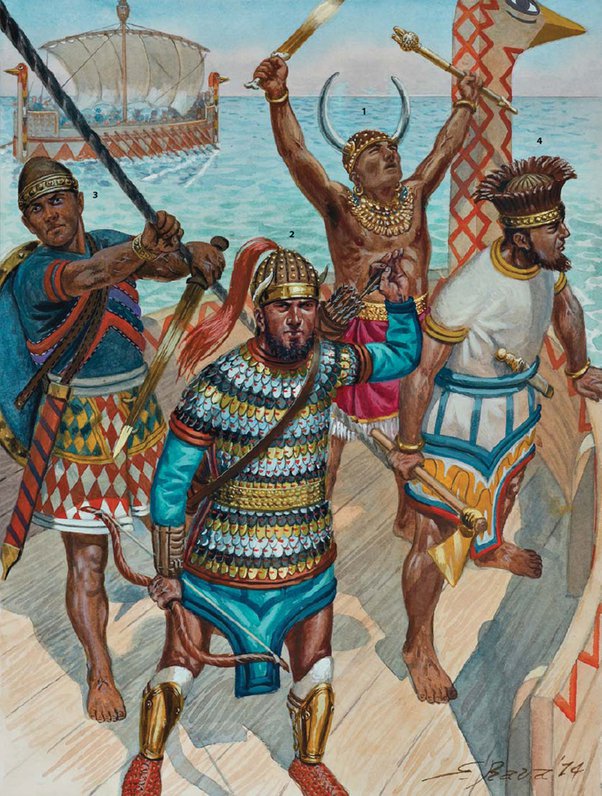 A depiction of the Sea Peoples by the inimitable Giuseppe Rava. Here we see 1: a priest; 2. an aristocrat; 3 & 4. warriors of the 'Ekwesh' - one of many tribes amongst the Sea Peoples mass. A depiction of the Sea Peoples by the inimitable Giuseppe Rava. Here we see 1: a priest; 2. an aristocrat; 3 & 4. warriors of the 'Ekwesh' - one of many tribes amongst the Sea Peoples mass. Amongst the many Sea Peoples tribes were: The Sherden, The Peleset, The Ekwesh, The Teresh, The Lukka, The Shekelesh, The Meshwesh, The Kariska, The Denyen, The Tjekker, The Weshesh (yes, many of those names sound like they should be pronounced with no teeth in!) Together, this huge host descended from the north and the west in a series of waves, and proceeded to churn the near east into oblivion. Within a period of forty to fifty years at the end of the thirteenth and the beginning of the twelfth century almost every significant city in the eastern Mediterranean world was violently destroyed, many of them never to be occupied again. The Timeline of DestructionThe First Wave, circa 1230 B.C
The Second Wave, circa 1200 B.C.
"The people were disturbed in their islands. All at once nations were moving and scattered by war. No land stood before their arms, Not the Hittites, Cilicia, Carchemish, Arzawa nor Cyprus. They were all laid to waste. They desolated the people of Amurru, and its land was like that which has never come into being. They were coming for Egypt. Their confederation was the Peleset, Tjekeru, Shekelesh, Denyen and Weshesh lands united. They laid their hands upon the lands as far as the circuit of the earth, their hearts confident and trusting: ‘Our plans will succeed!" 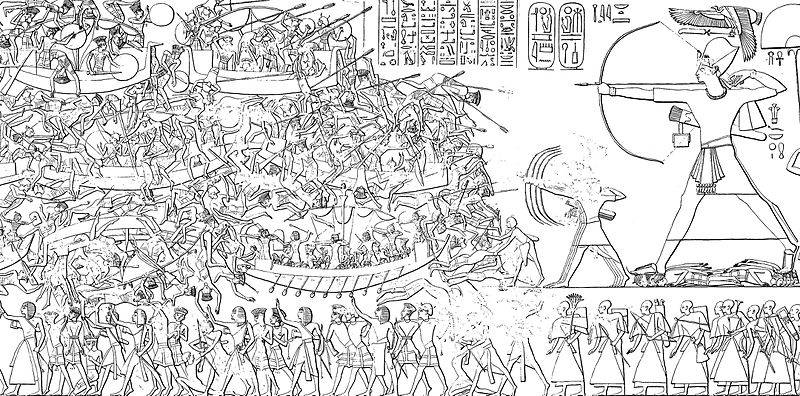 The reliefs at Medinet Habu, showing Ramesses III and his Egyptian forces fighting off a huge swell of Sea Peoples at the Battle of Zahi. Puzzlingly, while Ramesses' associated writings identify five Sea Peoples tribes being involved, these accompanying representational scenes seemingly represent only two (Horned Sherden and feather-hatted Peleset or Lukkans). Who were the Sea Peoples?This is probably one of the most enigmatic questions in history, and while I certainly don't expect this blog to provide a definitive answer, I hope my speculation proves interesting. The Sea Peoples origin theories range from:
I can state with some confidence that the Sea Peoples were not, as per the first theory, "Bloodthirsty Invaders". We must remember that this happened in the decades known as the Bronze Age Collapse, a time when - amongst other things - a mighty drought had gripped the world. The starvation attested by the Hittite tablets would have been widespread across much of Europe and the near east. If anything, hunger is likely to have been the thing that spurred the Sea Peoples to march in search of food and a better home. In other words, they were almost certainly a symptom of this Collapse, not a cause. Most plausibly, they were a loosely united host of tribes and states struck earliest and hardest by the drought and the storm of ruinous earthquakes that accompanied it. E.g. the peoples in Greece, Thrace and western Anatolia, and even those from Italy, Sicily and Sardinia too. In short, a mix of the "Great diaspora" and the "Greek Diaspora". Indeed, there are some depictions of what looks like Greek armour and the Egyptian depictions of the Sea Peoples - see the section at the end of the blog for imagery. I should pause to point out that, while most historical discussions (this blog included) tend to focus on the destruction associated with the Sea Peoples, this does not mean that they were a violent people per se. In my opinion, the violence that followed the Sea Peoples' advance was most probably just another sad repetition of how mass migrational movements - of hungry and frightened people - often play out. Desperation and a stark lack of charity inevitably lead to conflict. Now, let's have a look at the individual tribes associated with the Sea Peoples' movement: The TribesThere are many speculative theories on the identities of the individual Sea Peoples tribes. What follows is a selection of the most interesting, along with a few of my own takes: The Sherden The Sherden are probably the most famous of the Sea Peoples factions, distinguished by their distinctive horned helmets. They had been involved in small-scale piratical raids on the eastern coasts for generations before the age of collapse. Indeed, the legendary Egyptian Pharaoh Ramesses II even retained a small guard unit of Sherden. He said of their earlier, smaller raids: "The unruly Sherden whom no one had ever known how to combat, they came boldly sailing in their warships from the midst of the sea, none being able to withstand them. But where did they come from? All we know from Ramesses III's writings is that they originated north of Egypt. Pretty vague! They may have originated from Sardinia (Sherden-ia), or perhaps they later settled there, giving that island their name and ending their days of migration and raiding. The Shekelesh In 8th c BC - some four centuries after the Bronze Age had ended - Greeks colonising Italy arrived on the island of Sicily. Here they encountered a group called the Sikels, whom they believed had come to Italy after the Trojan War (which probably occured very close to or during the Bronze Age Collapse and the Sea Peoples' movement). Perhaps these Sikels arrived in Sicily and gave the island its name after the collapse... or maybe the island had always been the home of the Sikels, and these ones the Greeks met were the indigenous remnant - the ones who had not set off on the Sea Peoples' movement. Reliefs suggest the Shekelesh warriors carried two spears and no shield, wore a gold medallion, and a bronze skullcap or cloth headdress. The Lukka Fairly easy one this - the Lukkans originated from the region in southwestern Turkey, known in the later Classical Age as 'Lycia'. It seems that the Lukkans were somewhat wild - a people with no king, but many tribes. Bordering on Hittite lands, they were at times friendly with the Hittite King, other times not so much. Also, as legend has it, the Lukkans came to Troy's aid in the Trojan War. The likelihood is that the Lukkans either rose in support of the Sea Peoples' movement, or - more likely in my opinion - were swept along by it (after having their already drought-stricken lands ravaged by the invaders, there wasn't much option but to join them) The Denyen / Danuna There is a strong likelihood that the Denyen were the core of the Mycenaean Greek refugees. In The Iliad, Homer sometimes referred to the Greeks as "Danaans" - a term supposed to cover all of the many city states that Agamemnon had mustered for his siege of Troy. The Peleset There are a few theories as to the origins of the Peleset - Crete and Anatolia being two mooted homelands. Generally it is thought that they originated somewhere in that region. I personally can't help but see the similarity in the name "Peleset" with the Greek city state "Pylos". This is just more conjecture, but with so little evidence to work with, it is not implausible. Also, the feathered tiaras the Peleset wore can be plausibly linked back to the southern stretches of Greece (where the city of Pylos was). Interestingly, after the Battle of Zahi, some Peleset were taken captive in Egypt and settled in Pharaoh's northeastern border regions to farm and patrol those lands. These people eventually became known as the Biblical Philistines. The Weshesh, the Tjekker & the Teresh I've grouped these three together because there are theories associated with each that they *might* have been Trojan diaspora, possibly swept along in the Sea Peoples' movement in the same way the Lukkans were. That they fought with short swords, long spears and round shields and sported 'hoplite-like plumes' on their helmets suggests they might have originated from Trojan/Aegean lands at least. Also, a mummified Teresh servant found in the court of Ramesses III still shows fair hair, sugesting he was most probably not of Egyptian or African origin. The Tjekker might have been:
The Weshesh might have been:
The Teresh might have been:
Maybe none of these three groups were Trojans, maybe all were. We will never know for sure. Yet legend remains that one Trojan group - having survived the Trojan War - then went on to escape the Sea Peoples' rampage and the fall of the Bronze Age. Eventually , as the story goes, they settled in northern Italy, founding the Etruscan civilization from which Rome would one day rise. With this in mind, one can consider another theory - given the similarity in the names - that the Teresh might have been the refugees from the fallen Greek city of Tiryns. I'm playing with possibilities here, but legend also has it that Diomedes, King of Tiryns and a key Greek player in the Trojan War, also sailed to northern Italy after the Bronze Age Collapse, and was something of a rival to the Trojan settlers there. All of this is hopefully food for thought. Please do leave your comments below. Thanks for reading!
6 Comments
6/7/2022 02:23:58 am
Very interesting blog, with some informed opinions. Thanks! I've often wondered if Ramses' depictions of the Shardana helmets are really an attempt to reproduce an Achaean crested helmet by someone who either never saw one, or misinterpreted the shape of the crest.
Reply
Gordon Doherty
6/9/2022 03:40:12 am
Thanks for the kind words.
Reply
Lisa G Scott
6/16/2022 12:42:08 pm
Please leave off with the fantasy element. I eagerly await each new book, but now I just fast forward all the Ishtar dreams. Broke my heart when storm was killed. Let's see if Shadow is a good replacement. Your proof reader (giving you the benefit of the doubt) needs to brush up on the homophones and the use of the apostrophe
Reply
6/17/2022 07:31:31 am
hi Lisa,
Reply
Clive A. Pearson
7/1/2022 03:54:22 am
Hi Gordon - I'm afraid that I have not read any of your books (to date) but I am an Aegean/Egyptian archaeologist (worked for the British School at Knossos) & I act as a consultant in this capacity to a writer friend of mine. I just wondered - how much work have you done with the extant 'Linear B' archive in connection to your theories on the phonetic similarities between the various names of the 'Sea Peoples' & Mycenaean sites in Greece? All best wishes.
Reply
Gordon Doherty
8/27/2022 06:39:02 am
Hi Clive,
Reply
Leave a Reply. |
AuthorGordon Doherty: writer, history fan, explorer. My Latest BookArchives
March 2023
Categories |
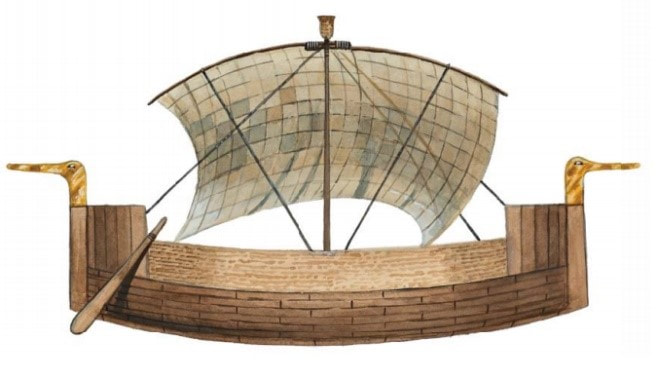
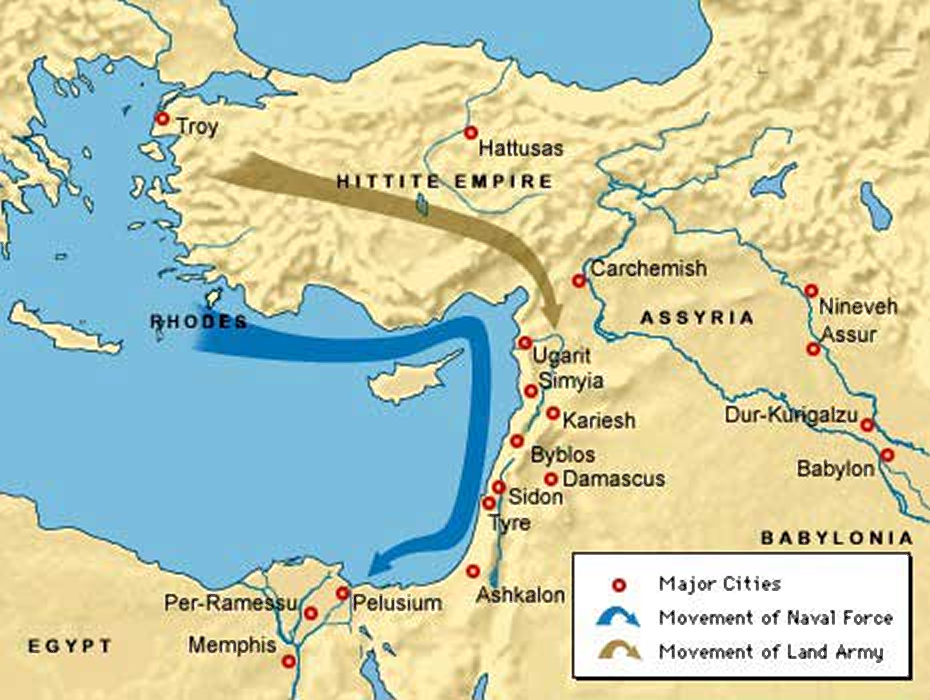
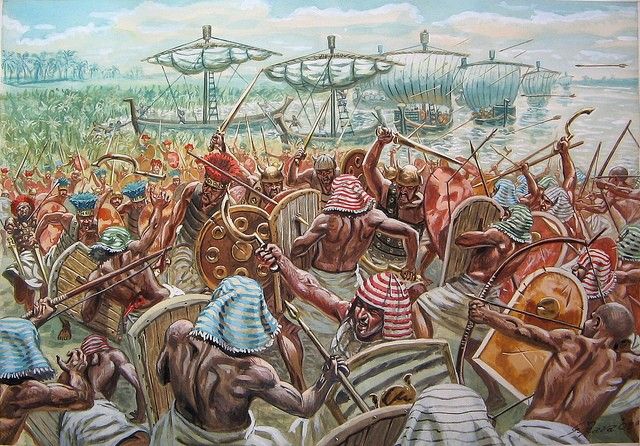
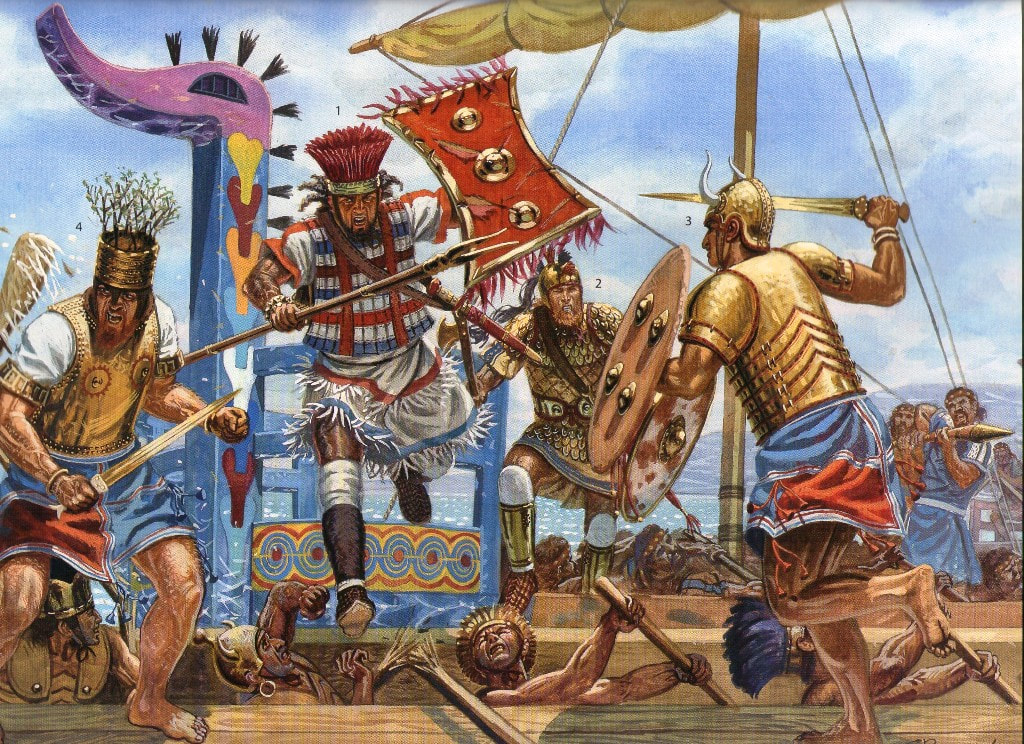
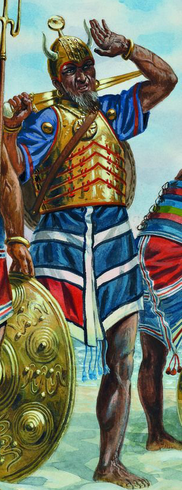
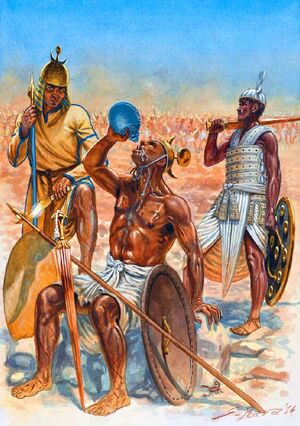
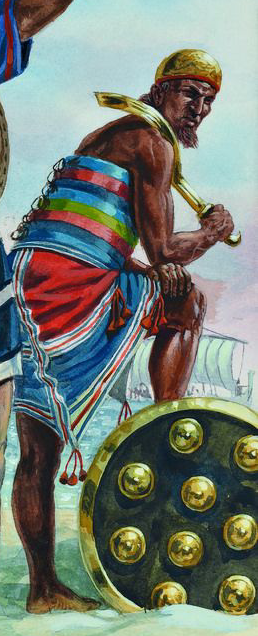
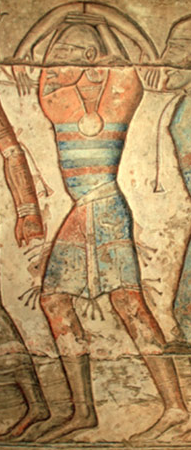
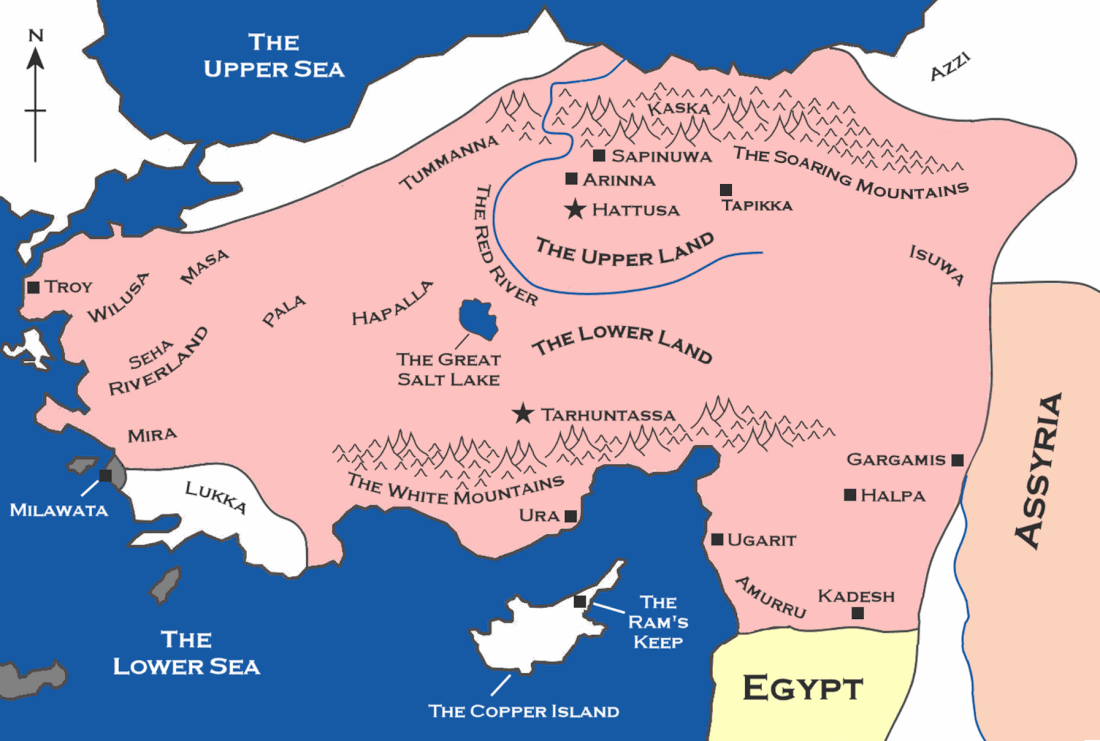
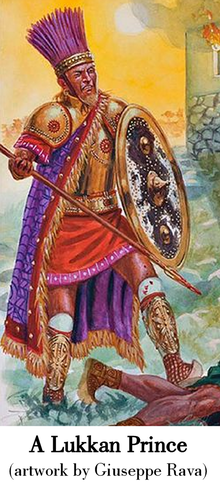
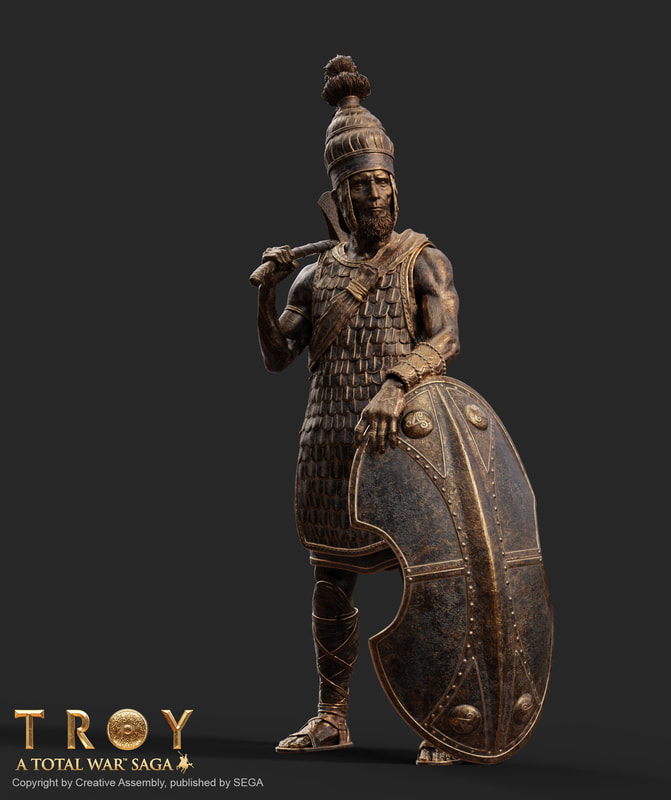

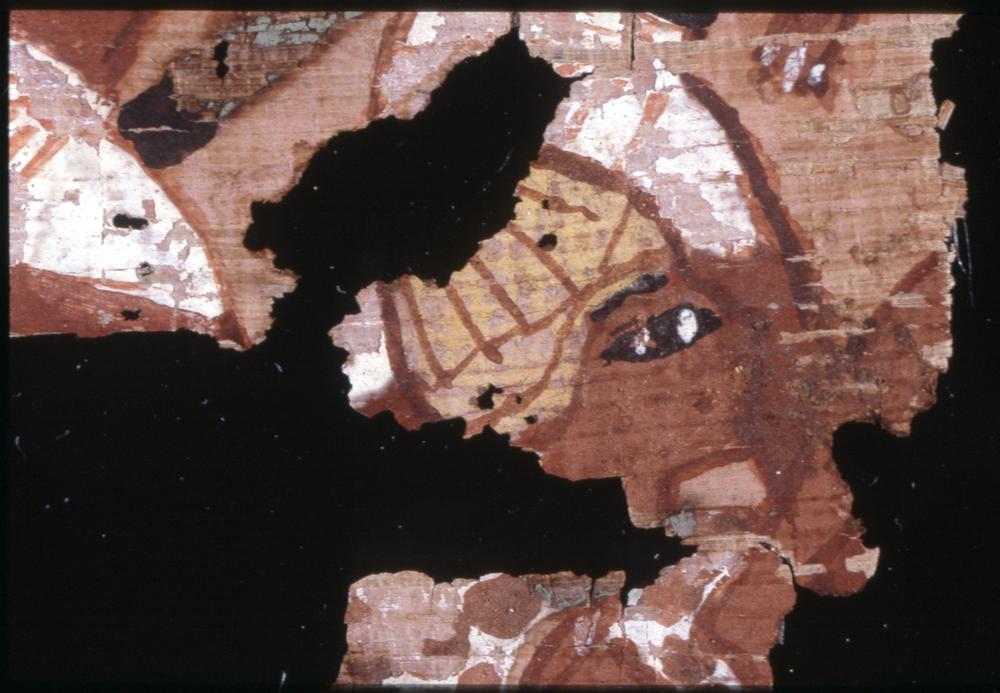

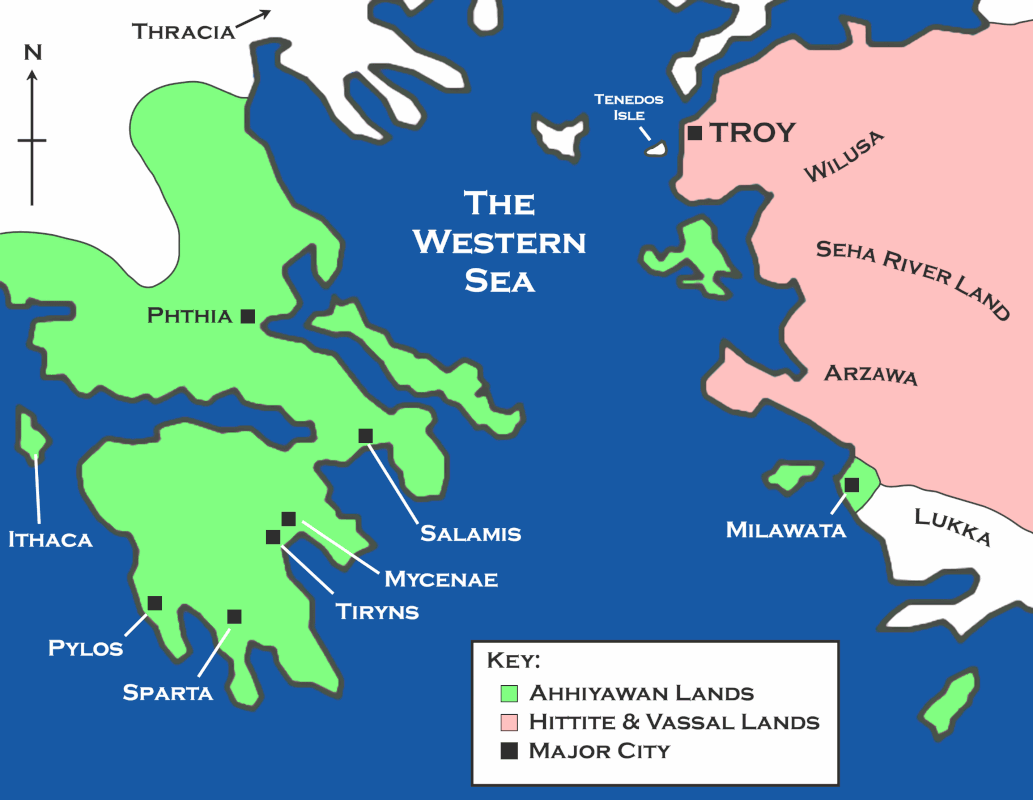
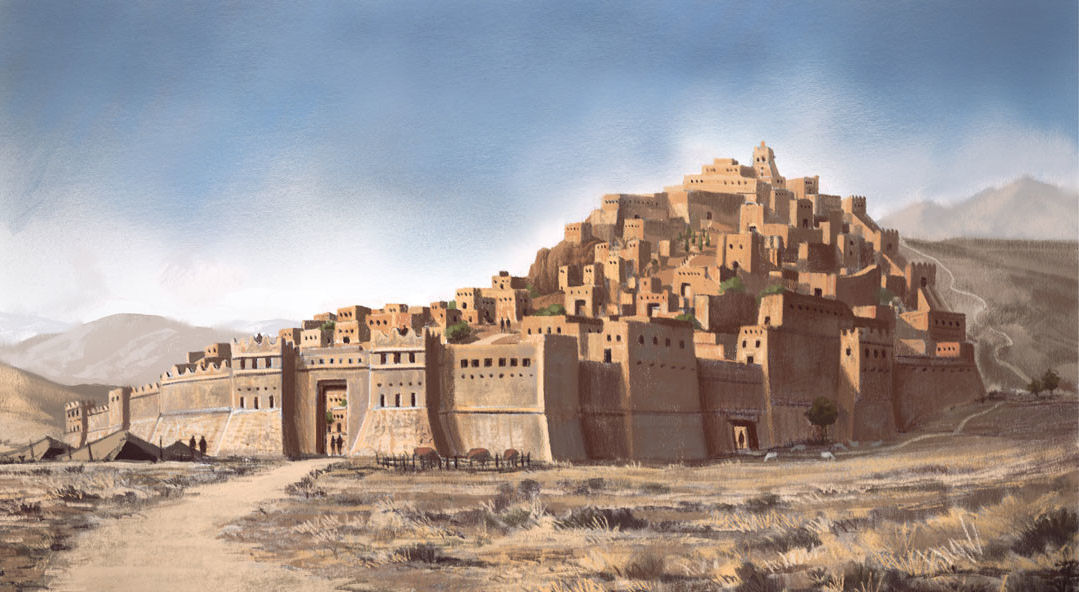

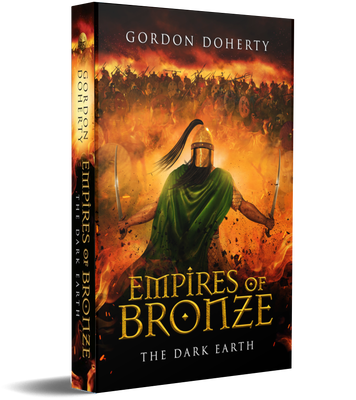


 RSS Feed
RSS Feed